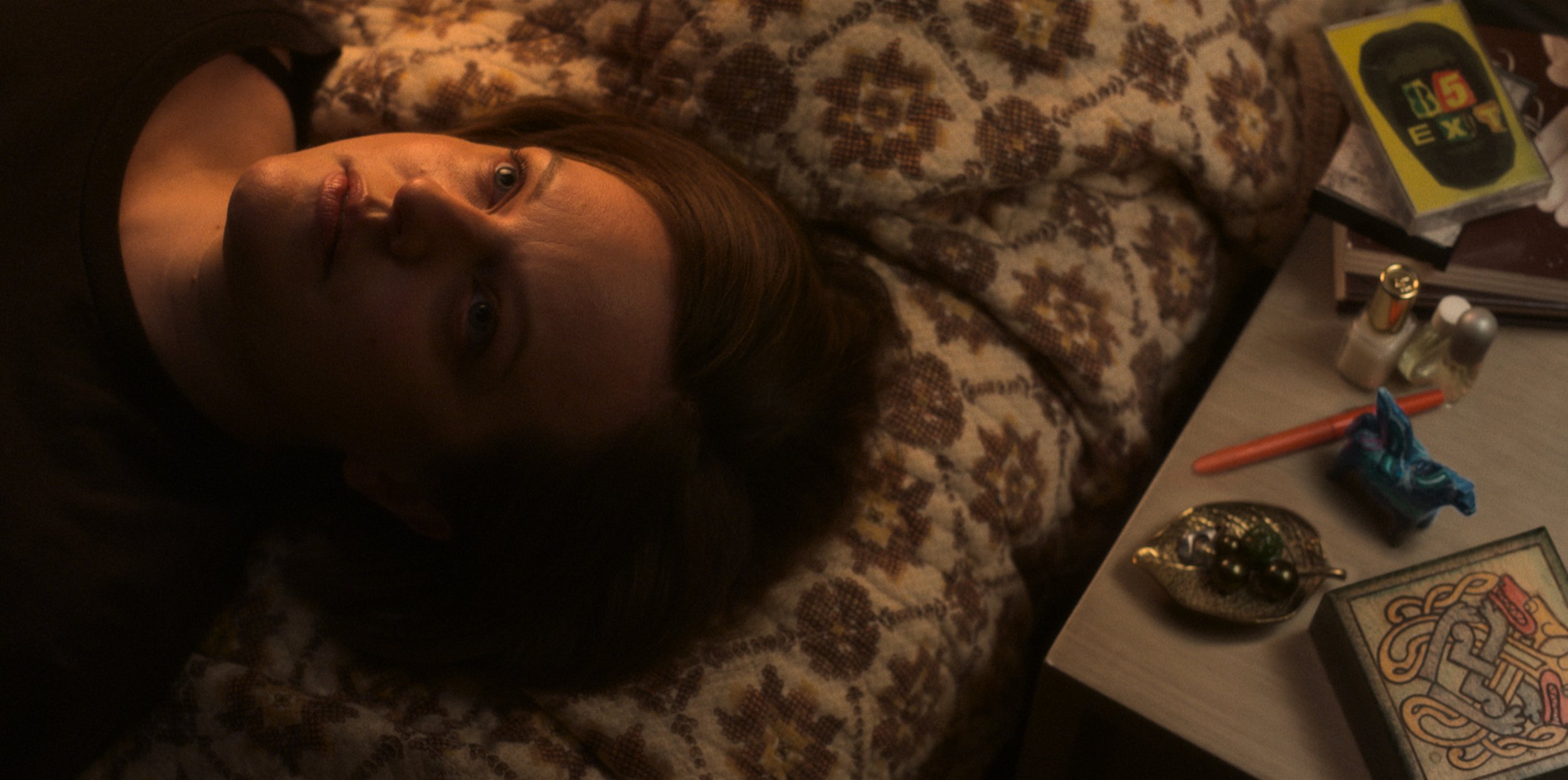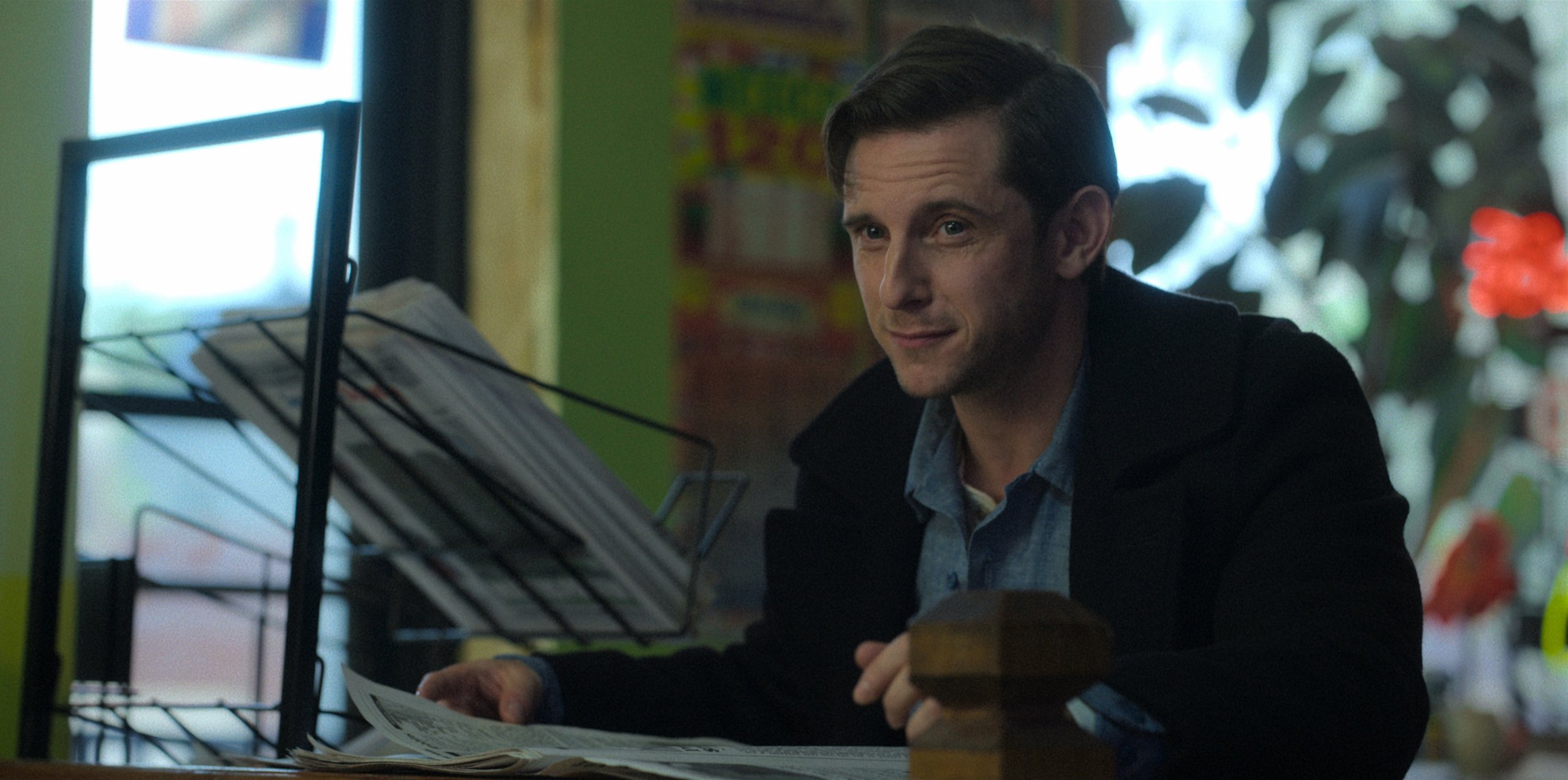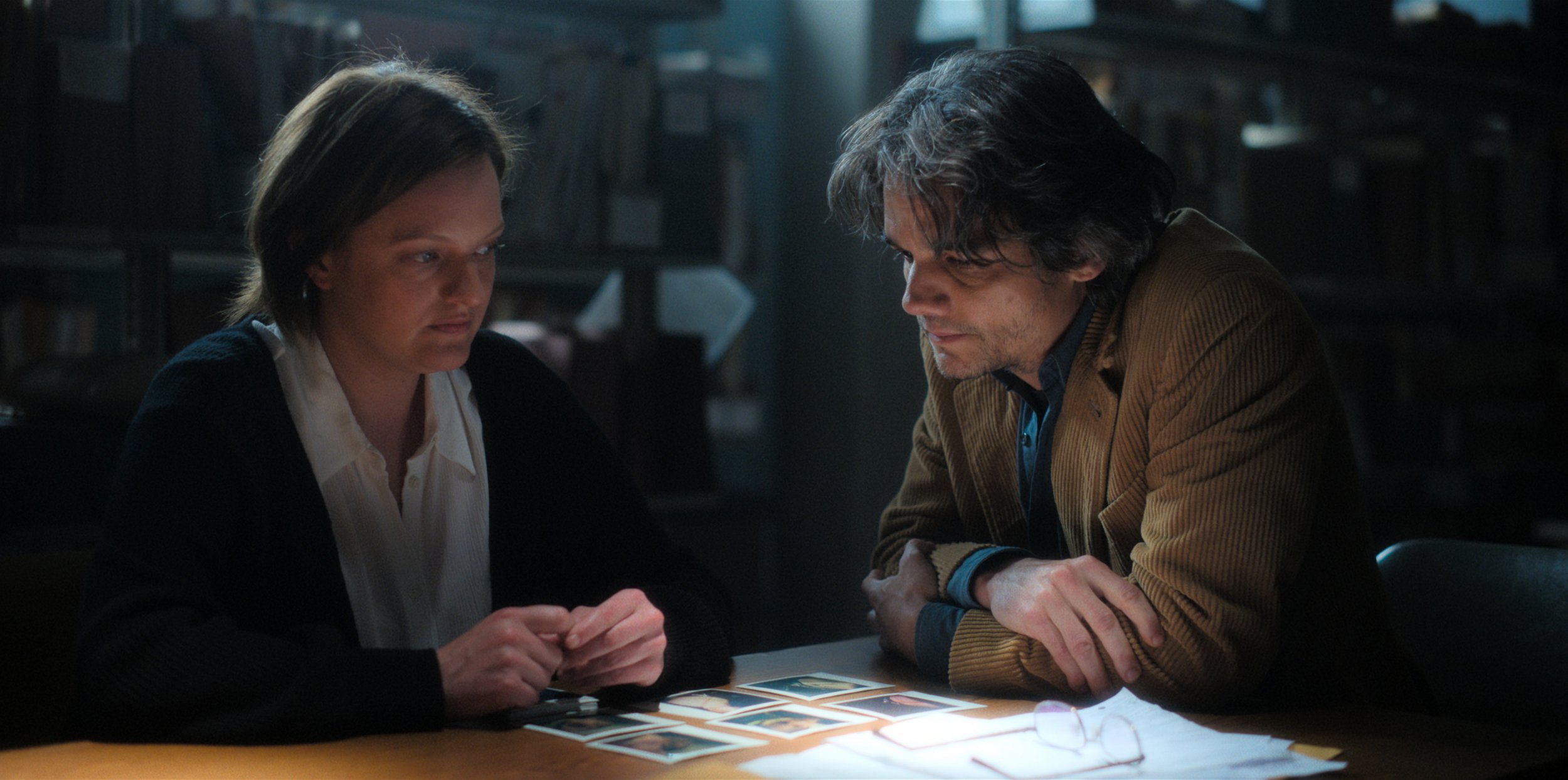
No one does intense angst quite like Elisabeth Moss. You might think that after going through the mill and back as the put-upon June/Offred in The Handmaid’s Tale, she’d cut herself a break.
But her latest thriller, Shining Girls, finds herself upping the intensity bar still further. It’s a time-travelling thrill ride but it’s dark, very dark. So I half-expect Moss to pop up on Zoom shrouded in a black blanket.
But no, there she is, laughing and joking in a stylish and eye-dazzling red dress, kidding about how she loves serial killer shows and how, in the episodes she directed, she had to remember not to short-change herself when it came to close ups in her role as newspaper archivist Kirby.
Shining Girls is a disorientating, complex tale to boil down to a nutshell, but ‘a murder thriller about the persistence of evil’ might just fit the bill.
‘I like that, it’s very astute,’ says Moss. ‘I would say it’s about the fight for your own reality. Kirby is not sure what reality is any more. The fight for your own reality is, for me, what it’s about.’
Moss’s Kirby is a woman who once nurtured journalistic ambitions but who, following a brutal assault, is just about keeping body and soul – if not mind – together as a newspaper archivist. We’re in the 1990s, so nostalgia lovers will savour the magic of the microfiche.
But the big masterstroke Shining Girls has up its sleeve is the casting of Jamie Bell as Harper, a malevolent presence whose appearance remains unchanged whatever time frame we’ve landed in.

‘The search for Harper was quite difficult,’ says Moss, who as executive producer was deeply involved. ‘Because what we needed to find was somebody who, if he sat down next to you in a bar, you’d have a lovely conversation with.
‘We did not want a moustache-twirling villain, he had to be somebody you liked and who these women, these smart women, would speak to. So we needed somebody who’s actually quite charming but not in a creepy way. It was difficult but when we met Jamie, he just blew us away.’
Keeping track of reality is probably the biggest challenge in Shining Girls. It often feels like someone has thrown the pages of Kirby’s life up in the air and they’ve landed in a completely different order.
She’s in an alternate universe to everyone around her, which puts her at the top of the charts when it comes to unreliable narrators. You’re never quite sure where she has pitched up in her own life or if the shifting time frame is literal or whether it’s a metaphorical way of telling us that history always repeats, that the cycle of violence against women remains unbroken.
‘What’s interesting,’ says Moss. ‘Is that you can watch this show as just a complete fun thing’ – though it should be pointed out here that Moss’s take on ‘fun’ may be wired slightly differently to most people’s. It’s a wild ride, it’s a total mystery. There’s a lot you’re not going to understand and we’re going to help you figure it out, as Kirby herself figures it out.

It should be pointed out that you get from Shining Girls what you put in. Its elliptical narrative and memory blanks call to mind 2000 movie Memento, while Moss cites the mental disorientation of the dementia depicted in The Father as an influence.
‘The most challenging thing for us was how much we stay ahead of the audience or behind them,’ she says. ‘It goes back and forth – does Kirby know more than the audience does or does she know less? Storytelling wise that was the hardest balance to find, so our guiding principle was just to make it as smart as possible.
‘It’s for an intelligent viewer – our biggest mistake would have been to dumb it down. And I don’t think we have.’
Shining Girls episodes 1-3 are available on AppleTV+ on Friday followed by weekly episodes.




















